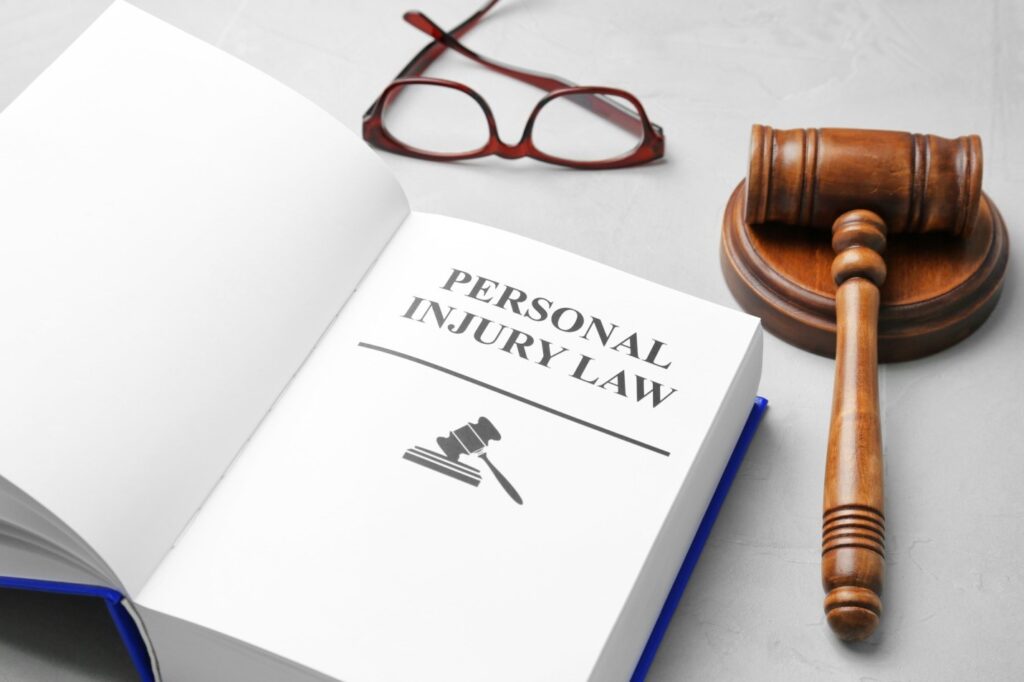Imagine the sudden shock and confusion as you find yourself in the midst of an unexpected auto accident! In an instant, your life has been turned upside down. And then you’re left to grapple with the physical, emotional, and financial fallout.
A personal injury case can be heart-wrenching and complex. But with the right guidance and tools, you can strengthen your case and obtain appropriate financial compensation for your suffering.
In this article, we’ll provide you with valuable insights and tips on how to navigate the daunting process of a personal injury claim. We’ll explore the importance of evidence and seeking legal and attorney services. Plus, we’ll look at other vital factors that can make a significant difference in the outcome of your case.
Read on to get clued up about personal injury claims!
Understanding Personal Injury Cases

Personal injury refers to harm or damage caused to an individual as a result of someone else’s negligence or intentional actions. This harm can take various forms, including:
- Physical injuries
- Emotional distress
- Damage to property
Common examples of personal injury cases include:
- Car accidents
- Workplace accidents
- Slip and fall incidents
- Product liability
- Medical malpractice
When someone suffers a personal injury due to someone else’s negligence, they have the legal right to seek compensation for their losses. The purpose of a personal injury claim is to hold the negligent party accountable for their actions.
Financial Compensation
A claim is also a way to provide the injured person with financial compensation to cover their:
- Medical expenses
- Lost income
- Other related costs
To win a personal injury case, the injured person or plaintiff must prove that the defendant’s actions or inactions caused their injuries. They must also demonstrate that the defendant had a duty of care towards them, which they breached, and that the breach resulted in the plaintiff’s injuries.
The plaintiff’s lawyer will gather evidence, such as medical records, eyewitness accounts, and expert opinions. These are things to support their case and prove the defendant’s liability.
Seeking Legal and Attorney Services for Personal Injury Cases
If you have suffered a personal injury, seeking legal services from a knowledgeable attorney can help you navigate the complex world of personal injury law. It can also ensure that you receive fair compensation for your losses.
Here are some key reasons why you should consider hiring a personal injury attorney:
Case Evaluation
A skilled attorney can evaluate the details of your case and provide an honest assessment of your chances of success. They will:
- Review the evidence
- Assess the extent of your damages
- Identify the parties responsible for your injuries.
In addition to assessing the likelihood of winning your case, a personal injury attorney can also evaluate the value of your claim. They will consider various factors, such as the severity of your injuries, the long-term impact on your health and finances, and any potential future medical expenses.
This evaluation can help you understand the full extent of your damages. Then you can negotiate a fair settlement with the insurance company.
Guidance
Navigating the legal system can be challenging, especially if you are dealing with a personal injury. A knowledgeable attorney can guide you through the process, explaining your rights and helping you make informed decisions about your case.
Your attorney can advise you on the best course of action, including whether to settle or proceed to trial. They can also provide you with information on the potential outcomes of your case, the risks involved, and the likelihood of success. With the guidance of an experienced attorney, you can make informed decisions that are in your best interests.
Negotiation and Litigation
A personal injury attorney can provide the necessary attorney services to negotiate a settlement with the insurance company or present your case in court. They can help you maximize your compensation by calculating the full extent of your damages and arguing for your rights in front of a judge or jury.
Your attorney can negotiate with the insurance company on your behalf, ensuring that you receive fair compensation for your losses. If the insurance company refuses to offer a fair settlement, your attorney can take your case to court and present a compelling argument for your rights. They can handle the legal proceedings, present evidence, cross-examine witnesses, and make persuasive arguments to the judge or jury.
Experience
Personal injury law can be complex, and the legal system can be daunting. A skilled attorney has the experience and knowledge to handle the legal proceedings effectively and efficiently. They understand the nuances of the law, can anticipate potential issues, and can provide you with a competitive advantage in your case.
An experienced personal injury attorney knows how to navigate the legal system and can help you avoid common pitfalls that could harm your case. They have a deep understanding of the law and can anticipate the arguments and tactics used by the opposing side. With their experience, they can build a strong case and help you achieve a favorable outcome.
Contingency Fee Arrangement
Many personal injury attorneys work on a contingency fee basis, which means that they only receive payment if they win your case. This arrangement can be beneficial for clients who might not be able to afford legal services upfront.
A contingency fee arrangement means that your attorney will only be paid if you win your case. If you do not win, you will not owe any legal fees. This arrangement can provide peace of mind for clients who might be hesitant to pursue legal action due to financial concerns. It means that your attorney has a strong incentive to win your case and maximize your compensation.
Preserving Evidence for Your Case
Preserving evidence is one of the most critical steps in strengthening your personal injury claim. Evidence is the backbone of your case and can help establish the facts of what happened, who was responsible, and the extent of your injuries.
Here are some essential steps you can take to preserve evidence for your case:
Document the Scene
If possible, take photographs or videos of the accident scene. This can include pictures of the damage to vehicles, injuries, and the surrounding area.
Documenting the scene can provide crucial evidence to help support your claim and refute any conflicting accounts of what happened. Additionally, consider sketching a simple diagram of the accident location, showing the position of vehicles, traffic signs, and any other relevant details.
Collect Witness Statements
Gather statements from anyone who witnessed the accident, including contact information. Eyewitness accounts can be powerful evidence in proving negligence and can support your version of events.
Promptly reaching out to witnesses can ensure their memories are fresh, and their recollections are accurate. Your attorney can later use these statements to help build a strong case in your favor.
Obtain Medical Records
Obtain copies of your medical records related to your injuries. This can include records from emergency room visits, hospital stays, and any other medical treatment you received.
Medical records can provide critical evidence of the extent of your injuries and can help establish a direct link between the accident and your injuries. Make sure to include documentation of any follow-up care, physical therapy, and other ongoing treatments to demonstrate the full impact of the accident on your life.
Preserve Physical Evidence
If there is any physical evidence related to the accident, such as a defective product or damaged clothing, preserve it. Physical evidence can help support your claim and can be used to establish liability.
Store this evidence in a safe location and discuss with your attorney the best way to present it as part of your case. In some instances, expert analysis or testimony may be necessary to demonstrate the significance of the evidence and its connection to your injuries.
Car Black Box Data: A Key Component
If your personal injury claim involves an auto accident, don’t forget to preserve car black box data. Most modern cars are equipped with an Event Data Recorder (EDR), also known as a car black box.
A car’s black box records various data points leading up to and during a crash. This information can be vital in proving fault and can greatly influence the outcome of your case.
The data recorded by a car black box can include information such as speed, braking, and steering. This information can help establish whether the other driver was speeding or if they made any sudden maneuvers leading up to the accident. The data can also show the severity of the impact and the number of collisions involved.
It’s crucial to request that your attorney takes steps to preserve this data as soon as possible. The data can be overwritten or lost over time, so it’s essential to act quickly to ensure that this crucial evidence is not lost. An experienced personal injury attorney can work with accident reconstruction experts to analyze the data and use it to support your case.
Documenting Medical Treatment
In a personal injury claim, documenting your medical treatment and expenses is crucial. When you do this you establish a link between the accident and your injuries.
Try to prioritize your health and seek prompt medical attention after an accident. You should do this even if your injuries seem minor. This ensures that your injuries are properly diagnosed and treated and that any underlying medical issues are identified and addressed.
Keeping detailed records of your medical treatment is essential. These records should include:
- The names of the healthcare providers you have seen
- The dates of your appointments
- Any treatments or procedures you have undergone
This information can help establish the extent of your injuries and the medical care you have received.
Documenting Medical Treatment
In addition to medical treatment, it is important to document your medical expenses. These expenses can include:
- The cost of hospital stays
- Medical procedures
- Medication
- Physical therapy
In general, you should keep track of all expenses related to your recovery. Such expenses may include transportation costs to and from medical appointments, home health care, and medical equipment rentals.
Considering Pain and Suffering
Physical injuries aren’t the only factor in a personal injury case. Emotional pain and suffering can also play a significant role.
Keep a journal of your daily experiences and how your injuries have affected your life. This will help your attorney demonstrate the full extent of your pain and suffering to the court or insurance company.
Being Honest and Consistent
Honesty is crucial in a personal injury claim. Be truthful with your attorney, medical professionals, and insurance representatives. Any inconsistencies in your story can damage your credibility and potentially harm your case.
Remember, your attorney is on your side. So make sure to provide them with accurate information to help you receive the compensation you deserve.
Patience Is Key
Personal injury cases can be a long and arduous process. Don’t expect immediate results or a quick settlement. Stay patient and trust in the legal services provided by your attorney.
They’ll work diligently to protect your best interests and secure appropriate financial compensation for your injuries.
Use These Tips to Strengthen Your Personal Injury Case
Strengthening your personal injury case requires a combination of diligent evidence gathering, seeking professional legal and attorney services, and maintaining open communication with all parties involved.
Use these tips to ensure the best possible outcome for your claim, and remember, you don’t have to face this battle alone. With the right guidance and resources, you can navigate your personal injury case and secure the compensation you deserve!
For more helpful and interesting articles, click on our site logo.







Leave a Comment
You must be logged in to post a comment.